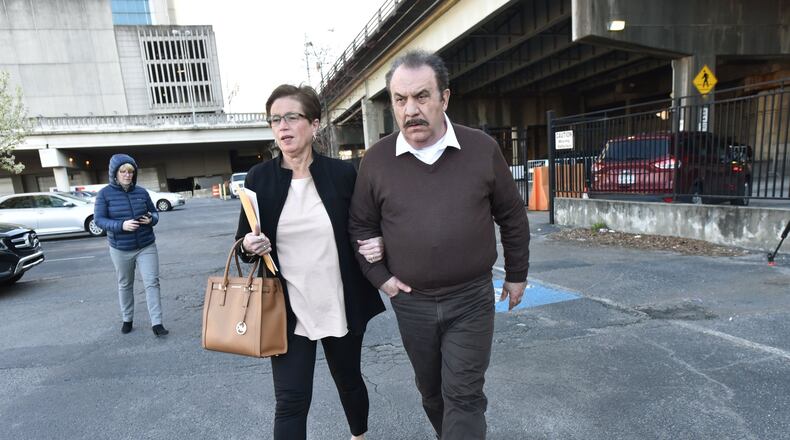A lawyer for a contractor accused of paying more than $40,000 in bribes to Atlanta's former purchasing director wants a judge to toss a recording that the government said shows the contractor tried to influence a federal witness.
If successful, the argument could throw a wrench into at least part of the government’s case against Jeff Jafari, who was indicted in February on 51 counts including bribery, money laundering, tax evasion and witness tampering. Jafari also is accused of bribing an unnamed DeKalb County official.
The government knew Jafari had a defense attorney representing him in early 2017 when an FBI agent “effectively” directed then-city purchasing chief Adam Smith to arrange a meeting and make a recording, defense attorney SteveSadow alleged in a court filing last week.
The government’s actions, Sadow argues, violated Jafari’s Fifth Amendment right to due process and the State Bar of Georgia’s rules prohibiting contact with a person who has legal representation.
The U.S. Attorney’s Office declined comment. Prosecutors have said Smith provided “substantial assistance,” taping “several” conversations with others, including at least some at the direction of the FBI. The subjects of those recordings and how many haven’t been disclosed.
Smith is a key witness in the corruption probe of City Hall and one of two members of former Mayor Kasim Reed's cabinet to plead guilty. From 2014 to January 2017, prosecutors allege Jafari paid Smith $1,000 in cash at a time during meetings at local restaurants, often in the restroom. Jafari has pleaded not guilty.
Smith was fired in February 2017, about a month after charges were announced against a different contractor, Elvin R. "E.R." Mitchell Jr.
Sadow’s filing said FBI agents recorded an interview at Smith’s home in January 2017 only days after Mitchell’s charges were made public. An FBI agent discussed with Smith “about you helping us further.”
“And I think you probably know what I’m thinking about. I mean I would love for you to record conversations, OK,” the filing quotes the FBI agent.
Smith arranged a meeting with Jafari at the FBI’s direction on Feb. 1. In a conversation Smith recorded that day, Jafari allegedly instructed Smith to tell the FBI the funds he received were loans and that he needed “to stay on the same page,” according to Jafari’s indictment.
“Adam, we’re in trouble if you don’t — if you cave in, I’m (expletive),” the indictment quotes Jafari.
Esther Panitch, a criminal defense attorney, said the Feb. 1 recording, as described in the indictment, is damaging to Jafari. It shows “consciousness of guilt” and an attempt to influence the testimony of a cooperating witness, she said.
But a judge could toss the tape if Sadow can establish wrongdoing on the part of the FBI, Panitch said. That could jeopardize the witness tampering count against Jafari, though he would still face dozens of other charges.
“It’s a real issue if the government knew that Jafari was represented about this at the same time they had Smith (tape) him on this conversation,” Panitch said. “It’s a real no-no.”
Caren Morrison, a former federal prosecutor who now teaches law at Georgia State University, said Sadow’s motion advanced “an innovative argument.”
“This is an usual legal basis in which to make this motion,” she said, “because usually complaints about individuals being approached while being represented are dealt with under the Sixth Amendment.”
The Sixth Amendment pertains to one’s trial rights, including the right to an attorney.
Sadow said during a court hearing in July that if his client paid Smith money, it was to help a cash-strapped friend and not with intent to influence contracts. Sadow also argues Smith lacked the power to steer contracts to Jafari.
The story so far
Atlanta contractor Jeff Jafari is the third businessman charged for allegedly paying cash for city of Atlanta contracts. An AJC analysis found on at least two instances, bribes Jafari allegedly paid came a day after City Council votes that potentially benefited his company. Jafari has pleaded not guilty and is awaiting trial. Five people, including two members of former Mayor Kasim Reed’s cabinet, have pleaded guilty in the federal investigation.
About the Author
Keep Reading
The Latest
Featured






